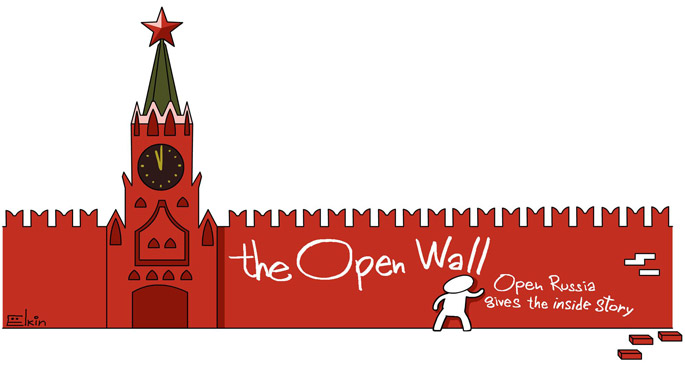Family matters, protection of motherhood and childhood
Family matters, protection of motherhood and childhood
Last week, Moscow’s Cathedral of Christ the Saviour played host to a meeting of the Patriarchal Commission on family matters, protection of motherhood and childhood.

To get its message across, the Russian Orthodox Church no longer relies on preaching and the moral force of its convictions. It utilises entirely modern methods to promote archaic endeavours.
The Patriarchal Commission is complaining about the fact that abortion has still not been excluded from the compulsory health insurance scheme (CHI).
The abortion ratio in Russia is 48 abortions per 100 live births, of which 3.4% are performed on medical grounds, and 0.005% for social reasons. In January 2015, at a meeting with State Duma deputies, Patriarch Kirill said that he regarded “as morally justified the exclusion of artificial terminations of pregnancy from the compulsory insurance programme, supported as it is by taxpayers, including those strongly opposed to abortion.”
The Patriarch’s words did not go unheeded, and soon a bill to ban abortions in private clinics, and to exclude them from the CHI scheme, was duly proposed by State Duma deputy Elena Mizulina, notorious for her attacks on the LGBT community.
This Church-sponsored legislative initiative was publicly condemned by many doctors. Gynaecologist Dmitri Lubnin, for one, is in no doubt that any attempt to restrict legal abortions can only hasten the development of an illegal abortion industry. “If abortions are, in and of themselves, terrible operations that maim women, illegal abortions are ten times more dangerous. Given our current environment, we could see the emergence of ‘abortion tourism,’ with women getting abortions in countries where they are permitted.”
The Internet’s riposte to Kirill and Mizulina was the RightToAbortion initiative. In a series of short videos, women called upon the church to show greater tolerance: “My great-grandmother died as a result of a clandestine abortion;” “The Church isn’t demanding that the government stop cutting jobs and social spending. No, what it’s demanding is that the lives of impoverished women become yet more impoverished.”
“Too much budget money is being spent on in-vitro fertilisation (IVF).”
“The billions of budget roubles spent annually on IVF could be used to build homes for thousands of multi-child families,” asserted Archpriest Dimitry Smirnov, chairman of the Patriarchal Commission – neglecting to mention why the domestic happiness of the latter should come at the expense of childless families denied access to IVF.
Dimitry Smirnov is a longtime and steadfast opponent of artificial insemination. IVF, in his opinion, is “totally unacceptable” from a moral point of view, resulting as it does in embryo deaths. According to Father Dimitri, “the Russian Orthodox Church is opposed to variants of IVF involving donor sperm, donor eggs or surrogate mothers. […] IVF technology means treating embryos like objects – namely, it means conservation, which is unacceptable. Such manipulation of human beings was recognised as a serious crime during the Nuremberg Trials.”
The Commission does not believe in the reality of domestic violence.
According to Father Dimitri, the issue of domestic violence is broached only for ulterior reasons. “This is subversion,” he says, “and its purpose is to destroy the family as the foundation of the Russian state and Russian society. But for children, women and the elderly, there can be no safer milieu than the familial.”
The latest statistics from the Ministry of Internal Affairs, however, offer less cause for such optimism: in 2014, 30,600 violent domestic crimes against women were registered in Russia – 10% more than in 2013. And over 18,000 such crimes were registered in the first six months of 2015 – an 11% increase on the same period in 2014.
Alyona Sadikova, director of the Kitezh Victims of Violence shelter, knows that there’s a correlation between domestic violence and female incarceration statistics: “Women subjected to beatings year after year just crack – and end up in jail. Defending themselves and their children, they might grab a knife and – seized now by a fit of passion – kill their husband.” But, according to Ministry of Labour statistics for 2013, a mere 21 crisis centres for victims of domestic violence are operating across the whole of Russia.
Pavel Astakhov, Presidential Commissioner for Children’s Rights gave a speech to the Commission, opposing the introduction of sex education in schools.
The state of children’s sex education in Russia already leaves a lot to be desired – there is no uniform teaching methodology; schools are left to themselves to teach as they think fit. Pavel Astakhov, however, is calling for the preservation of this ignorant status quo.
Olga Burmakova, sociologist, maintains that “the upshot of such a dearth of information on gender and sexuality is personal tragedy on a mass scale, as well as a plethora of vast societal problems: sexually transmitted diseases, unwanted pregnancies, sexual violence, to say nothing of discrimination against LGBT individuals, and women. This is a problem not only for today’s teenagers, but for adults too: millions of people across Russia, even those who are married or have active sex lives, know remarkably little about their own bodies and those of their partners – they’re sexually illiterate. In many cases, the information they possess is wrong or even dangerous.”
Archpriest Artemy Vladimirov took aim at Chekhov’s “On Love” and Bunin’s “The Caucusus,” stories which allegedly shouldn’t be taught in schools due their extolling of free love.
“The Caucasus” and “On Love” are great examples of classic Russian literature, featuring as they do a wealth of poignant detail, a precision of language, and timeless truths. But the ROC insists on a different interpretation. “This is a ticking time bomb for our children,” said Father Artemy, “our Commission must address its proposals regarding the matter to the Department of Education.”
And there you have it, a summary of what the Russian Orthodox Church thinks about abortion, IVF, domestic violence, sex education, and literature. No matter what one thinks about these issues, the ROC clearly intends to do what it can to impose its views on the population, working hand in hand with regime politicians. Unfortunately, with the system structured as it is, and with no system of checks and balances, the ROC is quite likely to prevail.




